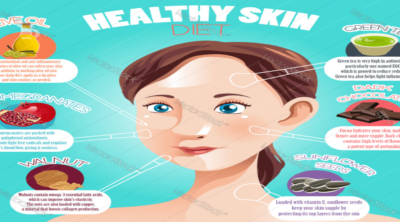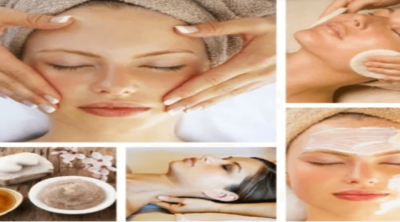
Octinoxate, a sunscreen chemical, can be problematic as its exposure has been linked to skin problems, like dry skin and acne. Read the following BeautiSecrets article to know more about the dangers of octinoxate.
Did You Know?
Too much use of sunscreen can interfere with vitamin D synthesis that takes place in the skin.
As the mercury rises during summer, we are often advised to apply sunscreen to keep our skin secure from UV damage. Most sunscreens available today contain octinoxate, an active ingredient that plays a key role in insulating the skin from UVB radiation. Repeated exposure to UVB rays can increase the risk of skin cancer. Also referred to as octyl methoxycinnamate, octinoxate acts like a UVB blocking agent, thus, preventing the skin from absorbing these harmful rays. However, applying sunscreens that have octinoxate as an active ingredient is fraught with side effects, some of which can be quite serious. The common and less common side effects of this chemical are outlined below.
Dry Skin
This is the most common side effect of using sunscreens containing octinoxate. The affected skin may appear rough, flaky, excessively red, and may itch persistently. So, though octinoxate absorbs UVB radiation, it may act like a skin drying agent, which may cause irritation.
Other Skin Problems
Some rare, but severe side effects may occur from the usage of octinoxate-containing sunscreens. For instance, those sensitive to octinoxate-containing sunscreens may complain about skin irritation, which may eventually lead to acne breakouts. Trading UV protection for pimples that keep popping up after every application is certainly not a good deal. People with sensitive oily skin are also at an increased risk of getting blackheads and blemishes, after applying sunscreens, particularly if the active ingredient is octinoxate.
Other skin problems that can occur after exposure to octinoxate and which may indicate sunscreen allergies are given below:
- Contact dermatitis
- Rash
- Inflammation of the hair follicles
Impairs the Immune System
According to the Environmental Working Group (EWG), a non-profit organization that has been raising concerns over sunscreen usage, sunscreen chemicals like octinoxate can be quite problematic as their usage has been associated with a compromised immune system.
Hormone Disruption
Octinoxate displays estrogenic activity, meaning it emulates the actions of the body’s natural estrogen. This is a serious cause for concern as this estrogen-mimicking chemical can disturb the hormonal balance and interfere with the functions of the endocrine system. Once applied, octinoxate in sunscreens gets easily absorbed into the skin. Thus, through this transdermal route, the body is exposed to this estrogen-mimicking chemical (octinoxate) that can disrupt activities of the body’s natural hormones. Its endocrine-disrupting activity can disturb the thyroid function.
Harmful to the Reproductive System
Animal studies indicate that octinoxate can be toxic to the reproductive system. This sunscreen chemical can impair the development of reproductive organs. In one human study, it was observed that using sunscreens (for 7 days) that contain octinoxate and other active ingredients like 4-MBC and oxybenzone caused a reduction in testosterone levels in men. Research has also shown that the hormone-disrupting properties this chemical can cause fertility problems.
Premature Aging
A 2005 study showed that when octinoxate came in contact with UV radiation, it resulted in the creation of free radicals―unstable molecules that trigger premature aging of the skin. Moreover, the production of free radicals continued despite stopping the source of UV radiation.
A 2008 report published in the Journal of the European Academy of Dermatology and Venereology proved the instability of octinoxate. This sunscreen ingredient split up to form a photoproduct that had less capacity to dissipate UVB rays. In short, octinoxate when exposed to UV rays became less protective against UV radiation.
Caution
Because of its estrogen-mimicking properties, octinoxate can be harmful during pregnancy. So, pregnant women and even children should refrain from using octinoxate-containing products. Although laboratory studies show that just 1% of octinoxate penetrates into the skin, it has been detected in mother’s milk, which raises a red flag.
All in all, considering the potential health concerns of this sunscreen chemical, one should avoid using octinoxate-containing cosmetic products. In order to avoid skin problems from sunscreen usage, you need to choose the one that suits your skin type. A lightweight sunscreen that doesn’t clog pores, is oil-free, non-greasy, gentle to the skin, contains natural ingredients, and dries quickly is ideal and can certainly give you that glowing complexion.
Disclaimer: The information provided in this article is solely for educating the reader. It is not intended to be a substitute for the advice of a medical professional.


